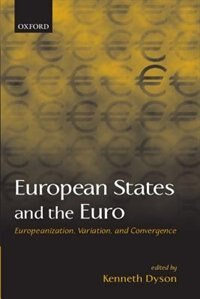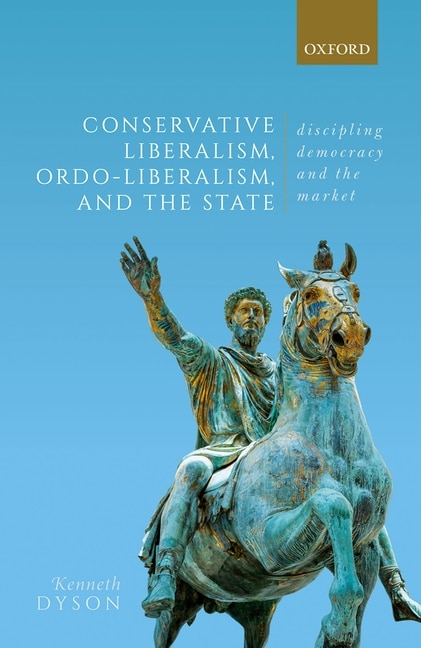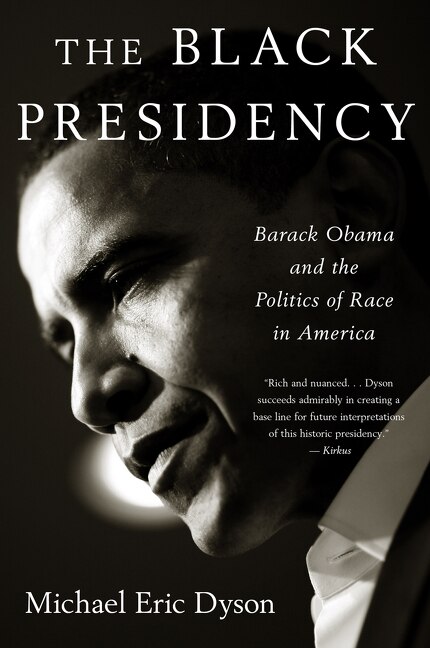
Choice Made Simple!
Too many options?Click below to purchase an online gift card that can be used at participating retailers in Village Green Shopping Centre and continue your shopping IN CENTRE!Purchase HereHome
European States and the Euro by Kenneth Dyson, Paperback | Indigo Chapters
Coles
Loading Inventory...
European States and the Euro by Kenneth Dyson, Paperback | Indigo Chapters in Vernon, BC
From Kenneth Dyson
Current price: $105.00

Coles
European States and the Euro by Kenneth Dyson, Paperback | Indigo Chapters in Vernon, BC
From Kenneth Dyson
Current price: $105.00
Loading Inventory...
Size: 2.16 x 23.4 x 610
*Product information may vary - to confirm product availability, pricing, shipping and return information please contact Coles
With Economic and Monetary Union, the European Union has embarked on one of the biggest projects in its history. Previous literature has focused on how EMU came into being and on the policy issues that it raises. European States and the Euro seeks to move the discussion forwards by offeringthe first systematic evaluation of how it is affecting EU states, both members and non-members of the Euro-Zone. It is the first book to explicitly situate EMU in the growing literature on Europeanization. It examines the effects on public policies, political structures, discourses, and identities. The book seeks to identify the scope of EMU's effects, the direction that it imparts to political and policy changes, the mechanisms by which it produces its effects, and the role of domestic institutions, political leadership and specific forms of discourse in shaping responses. In addition, the book assesses how, and with what effects, EMU is affecting key policy sectors labour markets and wages, welfare states, and financial market governance. What conditions the degree of convergence discerniblein these sectors? Finally, the book seeks to 'contextualize' EMU by assessing its effects both in comparison with other variables like globalization and in a historical perspective of the European Monetary System as a 'training ground'. The book combines sectoral and country case studies with athematic treatment by recognized experts in their fields. It moves from globalization, through EU-level changes, to member states and finally to specific sectors. The main conclusions are that EMU is most important in affecting the timing, tempo and rhythm of domestic change that these changes are experienced pre-eminently at the level of policy; that it strengthens pressures for convergence; but that different domestic institutional arrangements anddiscourses lead to variations in policy processes and effects and in the way change is 'framed'. In particular, whilst EMU contains a neo-liberalizing tendency exhibited most clearly in financial market effects, it is not to be characterized as a neo-liberal project by means of which the EU isbecoming an economic and social space simply converging around Anglo-American market capitalism. | European States and the Euro by Kenneth Dyson, Paperback | Indigo Chapters
With Economic and Monetary Union, the European Union has embarked on one of the biggest projects in its history. Previous literature has focused on how EMU came into being and on the policy issues that it raises. European States and the Euro seeks to move the discussion forwards by offeringthe first systematic evaluation of how it is affecting EU states, both members and non-members of the Euro-Zone. It is the first book to explicitly situate EMU in the growing literature on Europeanization. It examines the effects on public policies, political structures, discourses, and identities. The book seeks to identify the scope of EMU's effects, the direction that it imparts to political and policy changes, the mechanisms by which it produces its effects, and the role of domestic institutions, political leadership and specific forms of discourse in shaping responses. In addition, the book assesses how, and with what effects, EMU is affecting key policy sectors labour markets and wages, welfare states, and financial market governance. What conditions the degree of convergence discerniblein these sectors? Finally, the book seeks to 'contextualize' EMU by assessing its effects both in comparison with other variables like globalization and in a historical perspective of the European Monetary System as a 'training ground'. The book combines sectoral and country case studies with athematic treatment by recognized experts in their fields. It moves from globalization, through EU-level changes, to member states and finally to specific sectors. The main conclusions are that EMU is most important in affecting the timing, tempo and rhythm of domestic change that these changes are experienced pre-eminently at the level of policy; that it strengthens pressures for convergence; but that different domestic institutional arrangements anddiscourses lead to variations in policy processes and effects and in the way change is 'framed'. In particular, whilst EMU contains a neo-liberalizing tendency exhibited most clearly in financial market effects, it is not to be characterized as a neo-liberal project by means of which the EU isbecoming an economic and social space simply converging around Anglo-American market capitalism. | European States and the Euro by Kenneth Dyson, Paperback | Indigo Chapters


















